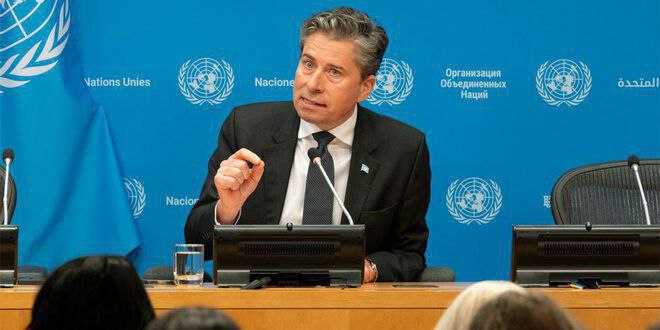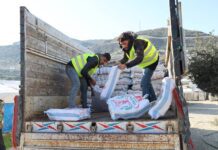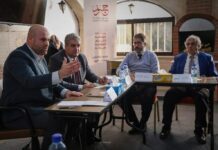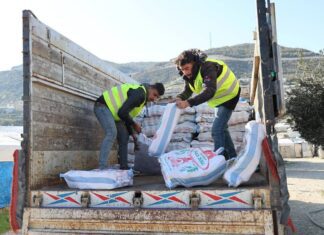
As Syria faces a pivotal moment in its post-war recovery, international organizations and key nations are weighing options for sanctions relief and reconstruction efforts to stabilize the country and facilitate humanitarian assistance.
Severe Funding Shortfalls
The United Nations Security Council (UNSC) convened last Tuesday to discuss Syria’s humanitarian and political situation. Danish Foreign Minister Lokke Rasmussen presided over the session, where UN Special Envoy Geir Pedersen and UN Under-Secretary-General for Humanitarian Affairs Tom Fletcher briefed member states on the urgent need for international support.
Fletcher warned that funding shortfalls have significantly impacted aid efforts, with only 13% of the UN’s $2 billion appeal met so far. He emphasized that 16 million Syrians—three-quarters of the population—lack access to food, water, and basic services. “The cost of inaction will far exceed the necessary investment,” Fletcher stated.
Despite logistical challenges, aid delivery has improved, including expanded cross-border shipments from Turkey and infrastructure repairs, such as the restoration of Aleppo’s Atareb water station. However, ongoing violence continues to disrupt relief efforts, with recent attacks in Latakia and Tartous displacing thousands.
Sanctions Relief Vital to Reconstruction
The reconstruction of Syria remains a contentious issue, complicated by sanctions imposed by the US, European Union, and other nations. Human Rights Watch (HRW) urged the EU to reconsider its sanctions policy, warning that restrictions are deepening civilian suffering. HRW noted that 90% of Syrians live below the poverty line and called for a comprehensive review to prevent harm to civilians.
Turkey has also pressed for lifting sanctions. Turkish Foreign Minister Hakan Fidan visited Washington and advocated for economic relief and discussed joint humanitarian initiatives with US officials. President Recep Tayyip Erdogan also previously urged US President Donald Trump to ease sanctions, arguing that restrictions hinder stability and refugee repatriation efforts.
Meanwhile, Washington has proposed a conditional framework for sanctions relief. Reuters reported that US Assistant Secretary of State Natasha Franceschi presented Syria with a list of demands, including the dismantling of chemical weapons stockpiles, counterterrorism cooperation, and restrictions on foreign fighters in government positions. In exchange, the US would offer partial sanctions relief, though no timeline has been set.
Divisions Remain an Obstacle
Diplomatic tensions persist within the US administration over Syria policy. While Secretary of State Marco Rubio has taken a firm stance on counterterrorism and governance issues, the State Department is advocating for a more nuanced approach to engagement with Damascus.
The broader international community remains divided on how to proceed. The European Union has eased some restrictions, particularly in the energy and transportation sectors, but HRW insists that further measures are needed. The EU has also committed €2.5 billion in aid for Syria through 2026.
As Syria navigates this uncertain phase, UN officials stress the urgency of decisive action. “Syrians want to rebuild their lives and their country,” Fletcher said. “Now is the time for the international community to step up.”








